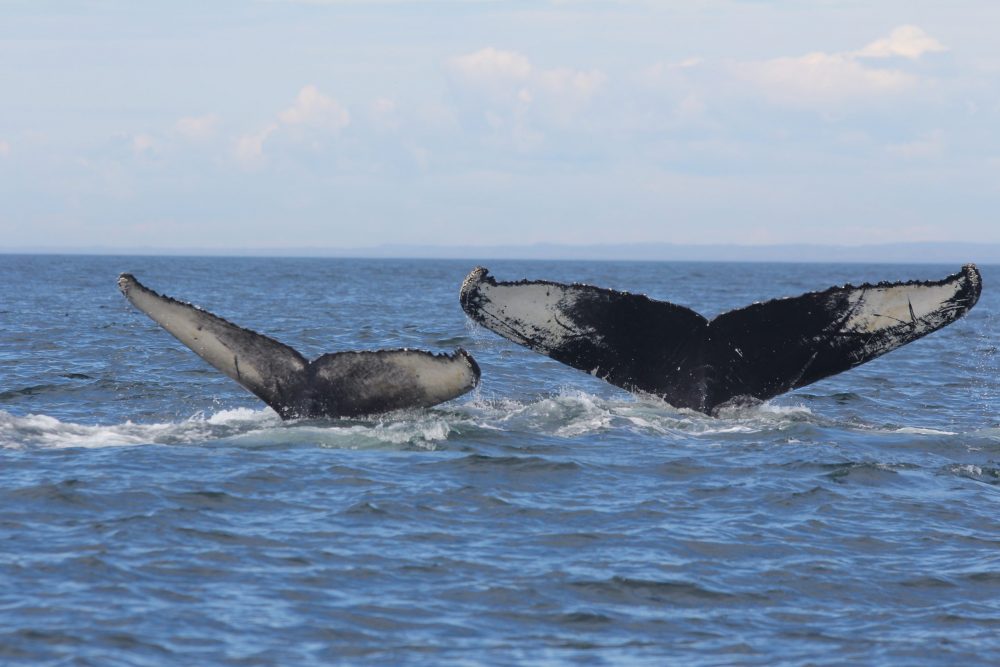CLIMATE change is impacting the breeding success of humpback whales in the Gulf of St Lawrence a new study has shown.
The new research, led by the University of St Andrews found that the number of whale calving rates have fallen significantly.
Breeding success has fallen significantly as major changes have been documented across the world’s oceans for decades as a result of the change.

The research, published in Global Change Biology, found that the probability of sighting females with calves was correlated with favourable environmental conditions in the previous year, specifically with the abundance of herring, one of their main prey species.
It had been previously thought that baleen whales could potentially show some resilience to climate change because of their ability to alter their migratory patterns, or switch prey species.
The research shows that whale’s ability to respond in these ways may not be enough to prevent their reproductive success from being impacted by ecosystem change.
Researchers Dr Joanna Kershaw, Professor Patrick Miller and Professor Ailsa Hall of the Sea Mammal Research Unit (SMRU) at the University of St Andrews collaborated with colleagues at the Mingan Island Cetacean Study (MICS) and the Department of Fisheries and Oceans in Canada.
The researches looked to investigate if environmental shifts measured in the Gulf of St Lawrence, an important summer feeding ground for humpback whales, could be affecting their breeding.
Lead author of the study Dr Joanna Kershaw, of SMRU at the University of St Andrews, said: “Long term monitoring efforts, and inter-disciplinary collaborations like these are vital to assess how marine mammals, and other marine species, may be impacted by climate change now and into the future.”
Using a combination of blubber biopsy samples to identify pregnant females, and sightings records of individual females collected by MICS, the research team investigated variation in breeding success between 2004 and 2018.
Dr Carol Sparling, Director of the Sea Mammal Research Unit at the University of St Andrews, said: “This is an important study that provides evidence that breeding success is linked to prey availability and that large whale species such as humpbacks may be more vulnerable to climate change than previously thought.”

